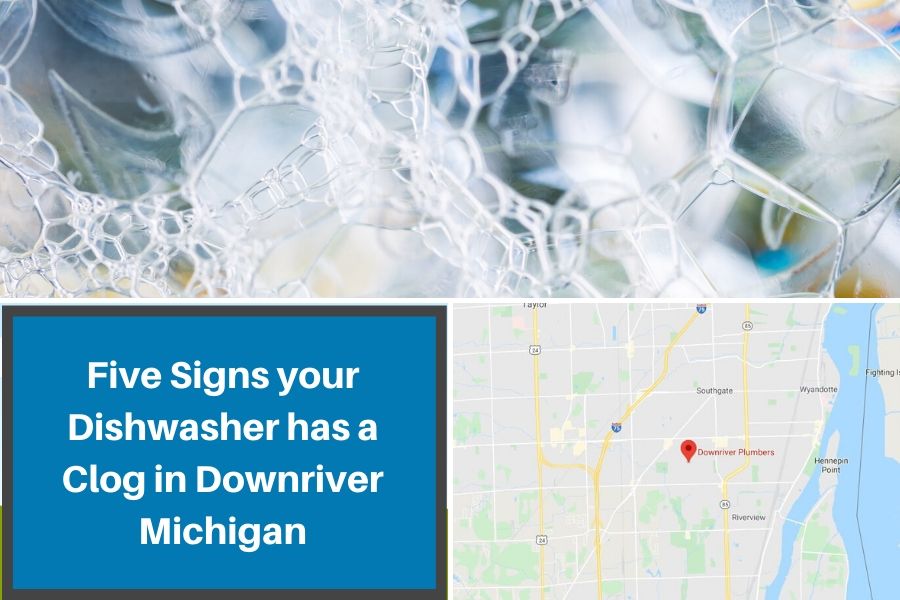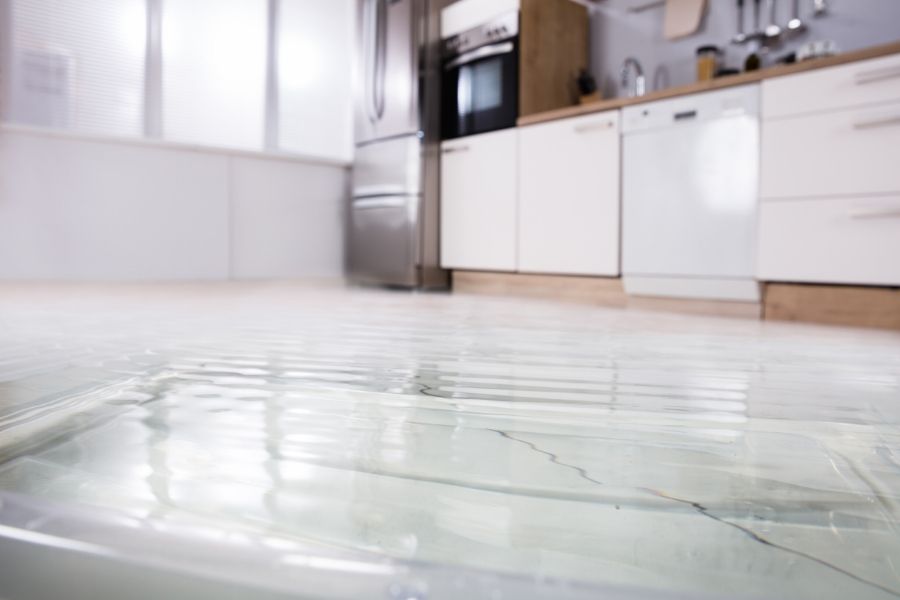We’ve all been there – our appliances aren’t acting correctly and we have no idea why. If you notice your dishwasher isn’t draining correctly, you could have a clogged line. Your dishwasher is connected into your kitchen sink main sewer line, including the supply and drain lines. If either of those lines in the system is clogged, your dishwasher will be affected. Not only can your dishwasher not get the water needed to properly clean your dishes, but the dirty water won’t be able to drain out all the way, either. It’s important you know what to look for if you suspect you have a clogged dishwasher so that you can have the problem looked at by a professional plumber in Downriver Michigan.
Five Signs your Dishwasher has a Clog in Downriver Michigan
One of the biggest problems with a clogged drain is that water can start to get into areas that it’s not supposed to. Since most dishwashers are connected to the drain in your kitchen sink or garbage disposal you may have a problem with a clog in that line. In any case water can spill over and onto the floor and in some cases the water will leak under the sink in the cabinet space where it may now even be noticed. This situation can become very problematic as rot and mold may start to affect the home. You’ll also notice a slow drain from your kitchen sink in some situations so be aware of this. With that being said here are 5 things you should look for when you think your dishwasher drain is clogged:

Five Early Signs of a Dishwasher clog:
- Gurgling – Make sure you are always paying attention to the sounds your house makes. It can tell you there’s a problem before you are able to see it. If you notice a gurgle sound from your pipes and drains, you could have water trying breakthrough a clog of some sort. The problem then comes in figuring out if the clog is in your main water line or a secondary line of some sort, so get a plumber out to take a look and properly diagnose your problem.
- Slow flowing drain – When your kitchen sink or dishwasher begin to drain slowly, and persistently slow, you could also have what is becoming a clog. You’ll want to get help ahead of the problem to prevent a full fledge clogged drain and bigger problem. You can also talk to your plumbing about what preventative action you may be able to take in the future to keep this from happening again.
- Water backup – When you run your dishwasher through a wash cycle, there should never be water backing up into your kitchen sink. If this is happening, there is more than likely a problem in your drainage system. Stop the dishwasher and run your garbage disposal to rule out any food debris obstructing the drains, then resume the wash cycle. If your kitchen sink is still backing up, there is a good chance you’ve got a clod in your line and you should call a plumber immediately to come take a look.
- Leftover water – After you’ve run your dishwasher, you should not have resting water in the bottom of the appliance. Your dishwasher isn’t draining as it should if this is the case, so you have a drain problem that needs to be addressed. There could be some troubleshooting you can do on your end, but above all else, call in a professional who will be best equipped at properly diagnosing your plumbing issues and getting you to a solution quickly.
- Unclean dishes – If you notice that your dishes aren’t getting cleaned, your dishwasher likely didn’t fill with water. You could have a clog in the main water supply line or the secondary kitchen supply line. Either way, that spells some hands on washing until you’ve corrected the problem.
If you’ve noticed any of these problems you may have a clogged drain in your home. It’s always best to call a licensed and certified plumber to deal with clogged drains. One of the best is Downriver Plumbers. They offer drain clearing and plumbing services in Downriver Michigan. Call them today at 734-548-9925


